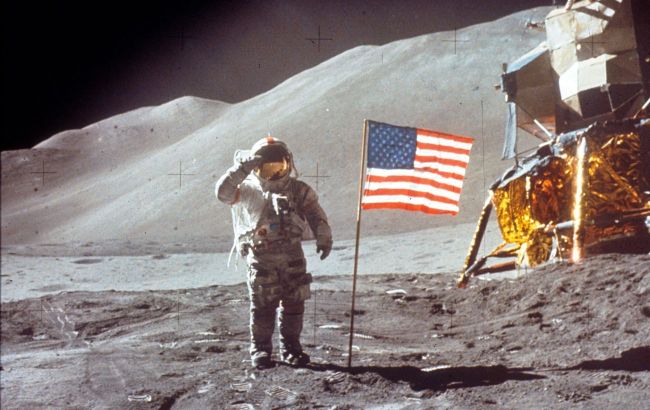US aims to dominate Moon using nuclear tech - Politico
 Photo: A nuclear reactor will be built on the Moon by 2030 (Getty Images)
Photo: A nuclear reactor will be built on the Moon by 2030 (Getty Images)
The new Head of NASA proposes replacing the International Space Station (ISS) and focusing on Moon exploration. First reactor launch planned by 2030, Politico reports.
According to the media outlet, Acting NASA Administrator Sean Duffy, a former Fox News host and Secretary of Transportation, is set to announce this week an acceleration of the project to build a nuclear reactor on the Moon. This will be his first major decision in the new position.
NASA had previously considered such a possibility, but now the timeline will be clearly defined. Documents obtained by Politico confirm that the reactor launch is scheduled by 2030, despite significant budget cuts to the agency.
US aims to win 'second space race'
"It is about winning the second space race," said a senior NASA official. The directive requires urgently finding contractors and appointing a project lead.
NASA had previously funded the development of a 40-kilowatt reactor for the Moon. Now the focus is on a 100-kilowatt nuclear reactor, which is necessary for crewed missions on the lunar surface.
China and Russia push US into action
NASA is concerned about the capabilities of China and Russia, who are already working on a joint lunar project. The directive notes that the country which first installs a reactor may declare a "keep-out zone," limiting the activities of other nations.
By 2030, China plans to land its astronaut on the Moon. NASA is striving to keep pace, despite political pressure and budget constraints.
Replacing ISS and betting on private sector
Duffy's second initiative concerns replacing the International Space Station (ISS). NASA wants to delegate this task to private companies and change its approach to contracting.
The agency plans to sign contracts with at least two companies within six months. The goal is to have the new station operational by 2030, otherwise, the Chinese station will remain the only permanent orbital outpost.
Private sector ready, but needs funding
Among the contenders for the new projects are Axiom Space, Vast, and Blue Origin. However, lawmakers are concerned that NASA is slow to allocate funding to them.
NASA emphasizes that nuclear technologies remain vital, despite the Pentagon's recent withdrawal from a joint program to develop a nuclear-powered rocket engine.
After Russia's invasion of Ukraine, the United States imposed large-scale sanctions against Russia, including measures targeting the space sector.

